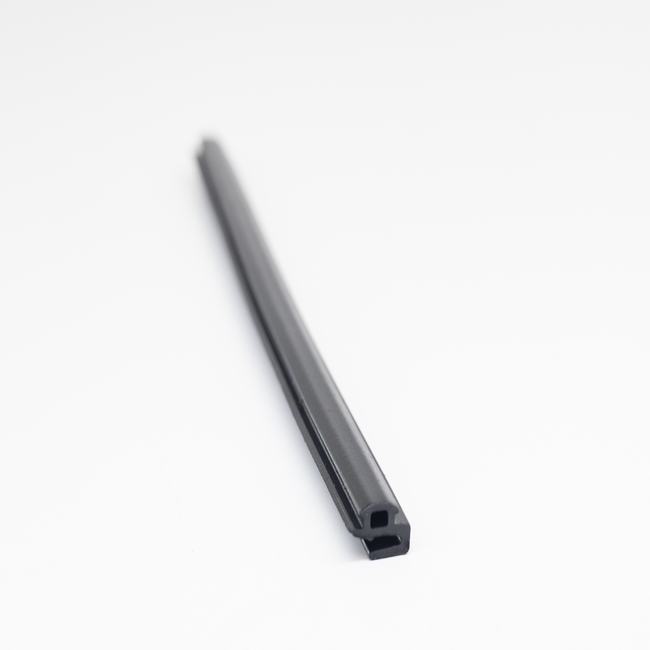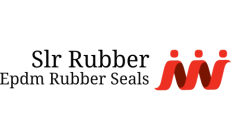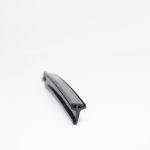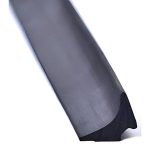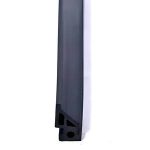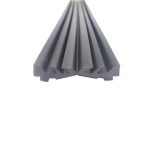Industrial seals are critical components used in a wide range of manufacturing, engineering, and industrial applications to prevent the leakage of fluids or gases, maintain the integrity of machinery and equipment, and ensure the safety and efficiency of industrial processes. These seals come in various forms, materials, and designs, each tailored to specific industrial needs. In this extensive description, we will delve into the various types, functions, materials, and applications of industrial seals, emphasizing their importance in modern industrial processes.
Key Functions and Features:
- Fluid and Gas Containment: The primary function of industrial seals is to prevent the escape or intrusion of fluids or gases in industrial equipment. This is essential in controlling the flow of liquids, gases, and chemicals, ensuring the integrity of processes and preventing environmental contamination.
- Pressure Management: Industrial seals are designed to withstand and manage varying levels of pressure, ensuring that equipment and systems operate safely and efficiently. They help maintain the required pressure differentials and protect against leaks or ruptures.
- Temperature Resistance: Many industrial processes involve extreme temperatures. Industrial seals are engineered to withstand high heat, cold, or rapid temperature changes without losing their sealing properties.
- Chemical Compatibility: In industries such as chemical processing, petrochemical, and pharmaceuticals, industrial seals are selected for their compatibility with specific chemicals and fluids to prevent degradation and contamination.
- Abrasion and Wear Resistance: Seals are often exposed to mechanical wear and abrasion. They are designed to withstand such stresses, ensuring a long service life and reliable performance.
- Customization: Industrial seals can be tailored to the unique requirements of each application, whether for specialized dimensions, material specifications, or sealing mechanisms.
Types of Industrial Seals:
- Gasket Seals: Gaskets are flat or shaped seals used to create a static seal between two mating surfaces. They are commonly made from materials like rubber, metal, or composite materials.
- O-Rings: O-rings are circular seals made from elastomers such as rubber or silicone. They fit into grooves or recesses, creating a dynamic or static seal between cylindrical surfaces.
- Mechanical Seals: Mechanical seals are used in rotating machinery like pumps and compressors to prevent the escape of fluids. They consist of multiple components and provide a dynamic seal.
- Lip Seals: Lip seals, often found in rotating shafts or hydraulic systems, have a flexible lip that contacts the surface and prevents leaks. They come in various designs and materials.
- Diaphragm Seals: Diaphragm seals are used to separate the process fluid from the measuring instrument, ensuring accurate pressure or level measurements. They are common in industries such as chemical processing and oil and gas.
- Expansion Joints: Expansion joints are flexible connectors used to compensate for movement, vibration, or misalignment in pipelines and ducting systems. They absorb thermal expansion and contraction and reduce stress on equipment.
Materials for Industrial Seals:
Industrial seals can be crafted from various materials to meet specific requirements:
- Rubber and Elastomers: Common materials include nitrile, neoprene, silicone, and EPDM. They offer excellent flexibility and sealing properties.
- Metal: Metal seals, such as copper, stainless steel, or aluminum, are used in high-temperature and high-pressure applications due to their durability and resistance to corrosion.
- PTFE (Polytetrafluoroethylene): PTFE seals provide exceptional chemical resistance and low friction, making them ideal for corrosive environments.
- Composite Materials: These seals combine different materials, such as fabric-reinforced rubber, for enhanced performance in specific conditions.
- Graphite: Graphite seals are employed in high-temperature and high-pressure applications, including those in the petrochemical industry.
Applications:
Industrial seals find applications in a broad spectrum of industries and settings:
- Oil and Gas: Industrial seals are used in pipelines, valves, and pumps to prevent leaks and maintain safety in offshore and onshore operations.
- Chemical Processing: They play a vital role in containing and controlling chemicals, preventing hazardous leaks and ensuring the integrity of chemical processes.
- Automotive: Seals are essential in vehicles to maintain engine, transmission, and brake system integrity.
- Pharmaceuticals: Pharmaceutical manufacturing requires sterile environments, and seals are crucial for maintaining purity and preventing contamination.
- Food and Beverage: Seals are used in food processing and packaging to ensure product safety and quality.
- Aerospace: In the aerospace industry, seals are used in aircraft engines, hydraulic systems, and landing gear.
- Power Generation: Seals are vital in power plants to maintain the integrity of steam and cooling systems.
- Manufacturing: From heavy machinery to precision equipment, industrial seals are found in numerous manufacturing applications.
Benefits:
The use of industrial seals offers various advantages:
- Safety: Industrial seals are instrumental in maintaining safe and controlled processes, preventing accidents, and safeguarding workers and the environment.
- Efficiency: They enhance the efficiency of machinery and systems by preventing leaks, reducing energy wastage, and minimizing downtime.
- Environmental Protection: By preventing leaks and spills, industrial seals contribute to environmental sustainability and regulatory compliance.
- Cost Savings: Effective seals lead to reduced maintenance costs, lower energy consumption, and extended equipment lifespans.
- Product Quality: In industries like food and pharmaceuticals, seals are essential for ensuring product quality and safety.
In conclusion, industrial seals are fundamental components in a wide array of industrial processes, serving to control and contain fluids, maintain safety, and optimize the performance of equipment and systems. Their adaptability in terms of materials and designs makes them indispensable in a variety of industries, playing a crucial role in ensuring the integrity and efficiency of modern industrial operations.
